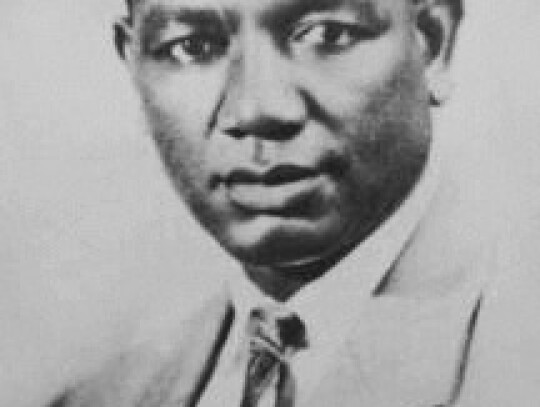We’ve all had that favorite teacher and an unmistakable mentor in our lives. Eagle Lake’s John Whitley was doubly fortunate to have both Booker T. Washington, Head of Tuskegee Institute and Dr. George Washington Carver, an educator and agricultural expert of renown not only as his friends but as his teachers.
John was born in Eagle Lake, the adopted son of Eagle Lake’s first African American County Commissioner Cicero Howard and John’s Aunt Cornelia Howard. John showed great promise as a young student, and had unusual capabilities for creativity and inventions.
Cicero Howard and wife Cornelia suggested that he forego farming after high school and look into a higher education possibility at Tuskegee Institute in Alabama. At over 700 miles away, it hardly seemed possible. John had no transportation to get there. With his determination to be educated, he decided to walk and hitch a wagon ride when he could.
When he arrived at Tuskegee, he found he could work by day and learn in classes by night. This he did with dedication until he finished his work several years later. Along the way, he found the friendship of both Washington and Carver to be life-changing. Both men were exemplary leaders and inspirational educators. They helped John believe he could do most anything.
Even his fellow students saw his talents and seriousness as a student, naming him “Deep Whit.” John always seemed to know things that other students didn’t. “My mentors taught me so much,” said John. “Dr. Carver knew more about peanuts than any man I ever knew, and Dr. Booker T. built the school and went out to raise a lot of money.” He remembered Booker T’s wisdom in teaching him to “Let down your bucket where you are.” That made a difference in John’s life.
In only four years John was a genius with machines. He could duplicate parts and make almost anything. In 1915, John moved to Austin and set up his own carpentry business, using machines for the skilled work. He also learned skills in business, painting, carpentry, and restoration.
Later John started his own art repair shop restoring paintings, frames, and pottery in a space behind his home called the “Ten-Ten Talent Shop. He brought young students from Huston-Ti llotson Col lege in Austin and taught them mechanical training, using his equipment. He was a spiritual man and believed that his many talents were God-given.
Colorado County and Eagle Lake are proud to have had John as a native son. His work is visible in all parts of Austin from the Governor’s Mansion to the Capitol, to the Driskoll Hotel and the J. Frank Dobie collection at the University of Texas. John Whitley became an internationally famous art restorer, and, like his mentors he always shared his talents with others. He was a master of his trade.
.jpg)



